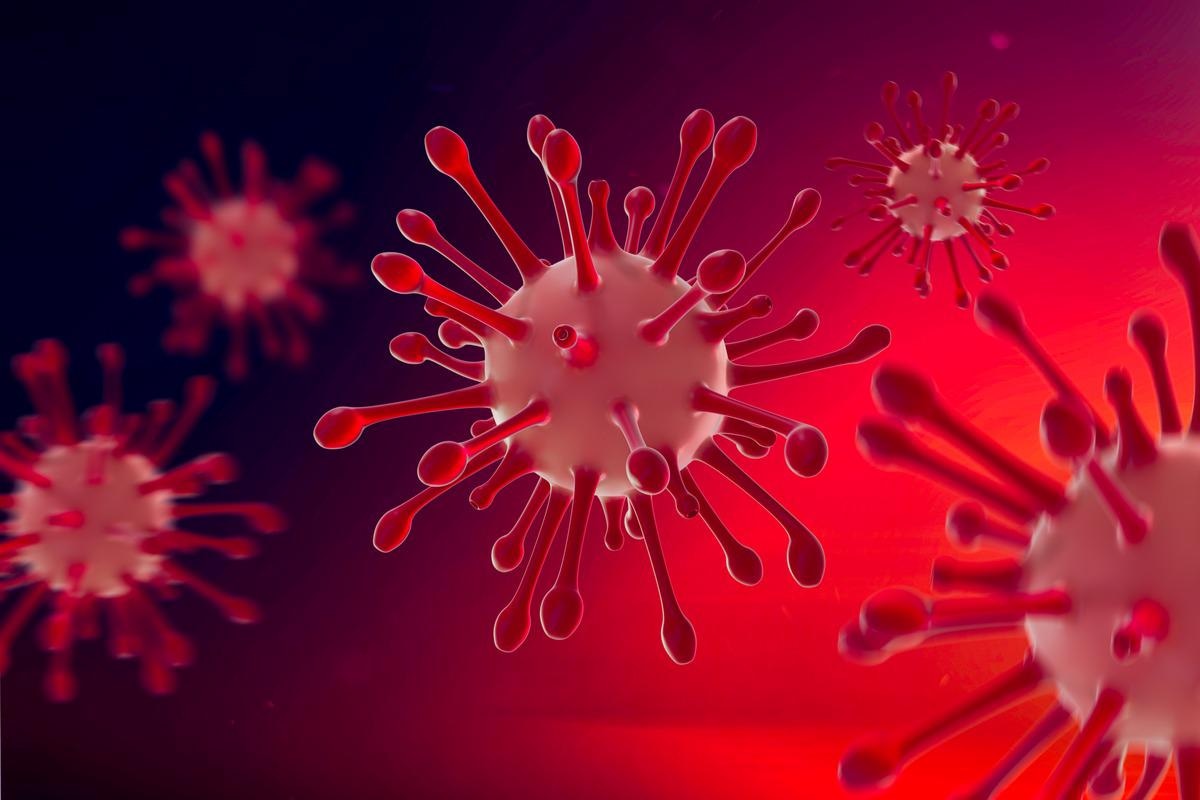Coronavirus disease 2019 (COVID-19) has a wide range of symptoms. In many of the mild cases, it remains asymptomatic. However, in symptomatic cases the effects can range from mild coughing and a sore throat to anosmia and lethargy, and even immune dysfunction, ARDS, and multiple organ failure.
The inflammatory and immune response severe acute respiratory syndrome coronavirus 2 (SARS-CoV-2) infection can induce can prove deadly, and researchers from Harvard Medical School have been investigating how much of this response is specific to SARS-CoV-2.
 Study: A virus-specific monocyte inflammatory phenotype is induced by SARS-CoV-2 at the immune–epithelial interface. Image Credit: MIA Studio/Shutterstock
Study: A virus-specific monocyte inflammatory phenotype is induced by SARS-CoV-2 at the immune–epithelial interface. Image Credit: MIA Studio/Shutterstock
The study
The researchers established a coculture model using ex vivo blood immunocytes that were in direct contact with virus infected epithelial cells in order to assess immunocyte interactions with SARS-CoV-2 infected cells. Human colorectal adenocarcinoma cell line Caco-2, known to be susceptible to SARS-CoV-2 infection, was used in place of primary lung epithelial cells, as these are known to be difficult to expand and manipulate.
Using flow cytometry and immunofluorescence they found that nucleocapsid protein from the virus was expressed in approximately 50% of Caco2 cells. Thirty-five hours post infection, any unbound virus was removed, and the researchers added peripheral blood mononuclear cells (PBMC) from health donors. Fourteen hours later these were harvested and purified for transcriptome profiling using RNA sequencing. While this data was lower quality than normally seen, the results were still interesting. Identification of differentially expressed genes was achieved through convergence of two independent experiments, with a third used for validation. This was in place of traditional statistical testing.
CD14+ monocytes and B cells often show perturbed transcriptomes in COVID-19 patients, so the analysis was focused on these cells. At least 675 differentially expressed genes (DEGs) were discovered in purified monocytes, with the most obvious response the induction of some of the most prominent proinflammatory cytokines and chemokines, including IL1B, IL6, TNF, CCL3 and CCl4, as well as antiviral IFN stimulated genes. The researchers also found that MHC class-II genes were significantly down-regulated. The most induced cytokine transcript was IL10, with IL6, IL1B and TNF following closely. These have an intricated and complex set of mechanics related to immune response, cell mobility and signaling pathways, and the scientists suggest that the changes cells undergo when exposed to infected cells are profound and far-reaching. The change in Caco-2 cells was extremely mild in comparison, showing none of the effects the monocytes suffered from.
Following this the researchers compared monocyte responses to epithelial cells infected with SARS-CoV-2 compared to other viruses, including the respiratory pathogen IAV and EBOV, a hemorrhagic disease associated with strong inflammation. Epithelial infection levels differed between three different viruses, but all induced sizable numbers of DEGs, IAV and EBOV ~50% more than SARS-CoV-2. IAV revealed very similar transcriptional changes to SARS-CoV-2, albeit with less effect on proinflammatory cytokines. CCL24 was downregulated strongly in both infections, suggesting reduced eosinophil recruitment.
The scientists then incubated PBMS in cultures with E.coli lipopolysaccharide (LPS), a TLR2/4 ligand, in order to investigate the suggestion that SARS-CoV-2 coculture signature could show elements of innate activation through TLR4 activation. They found that downregulation of LPS in monocytes was common to both SARS-CoV-2 and IAV infections, but upregulation of the response was only found in SARS-CoV-2. When they calculated an index for confirmed responsive genes across monocytes from different donors, this was confirmed. Profiling of monocytes in cocultures with Caco-2 cells infected with IAV revealed that the SARS-CoV-2 down signature was the most marked at an intermediate range, but the up signature could not be seen. EBOV monocytes showed largely the same results as IAV when compared to SARS-CoV-2.
To investigate which viral proteins could be involved in the SARS-CoV-2 specific response, Caco-2 cells were transfected with a panel of plasmids encoding for likely candidates. These were also later cocultured with PBMCs and monocytes profiled with RNAseq. Cross-referencing the results showing significantly increased variance and difference from controls with transcripts of SARS-CoV-2 induced signature revealed two groups of genes, G2 and G6, that showed significant overlap.
Conclusion
The researchers confirm that while some of the response from monocytes to SARS-CoV-2 is generic to virus infection, most of it SARS-CoV-2 specific, especially proinflammatory responses. They have also identified several likely candidates for groups of genes that are responsible for this reaction. They highlight the role of IFN and ISGs in COVID-19 pathogenesis, and offer more clues as to how this specific response is initiated. This information could be key for future researchers and drug developers, and could help combat the inflammatory response to COVID-19 infection that has proved deadly in many cases.